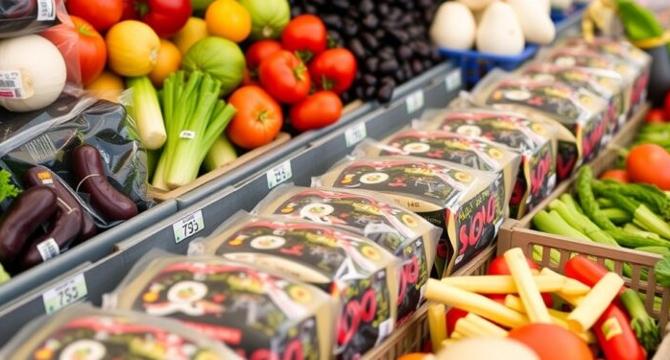Bioengineer
2w
138

Image Credit: Bioengineer
Implementing a Climate Fee on Food: A Promising Strategy for Reducing Agricultural Greenhouse Gas Emissions with Social Equity
- Recent research suggests that emissions from the agricultural sector could be reduced by 22.5 percent, equating to over 15 million tonnes of greenhouse gases per year, should the social cost of carbon be adequately incorporated into food pricing.
- Utilizing a model that captures household responses to price fluctuations, the researchers extrapolated how GHG pricing would affect consumption and, consequently, emissions levels.
- The implementation of a climate fee not only stands to benefit climate mitigation efforts but also holds the potential to catalyze a shift towards more sustainable dietary choices among consumers.
- The model indicates that the climate fee could generate approximately 8.2 billion euros, which could be redistributed to consumers in the form of a climate dividend.
- Moreover, the study highlights that a strategic combination of a climate fee and subsequent dividend could further enhance public acceptance.
- As households increase their purchase of less carbon-intensive foods, there is a corresponding likelihood of improved nutritional outcomes.
- Ultimately, this study serves as a compelling argument for the integration of economic instruments in climate policy design, particularly within the agricultural sector.
- In synthesizing these findings, it becomes evident that while agriculture remains a significant source of greenhouse gas emissions, it also holds the key to substantial reductions.
- The interplay of economic incentives, consumer behavior, and social equity introduces a multidimensional framework for climate action, where everyone stands to gain from proactive measures.
- As policymakers consider the implementation of these findings, it is critical that they engage with all segments of society to ensure that the shifts in food pricing and consumption are understood and supported.
Read Full Article
8 Likes
For uninterrupted reading, download the app